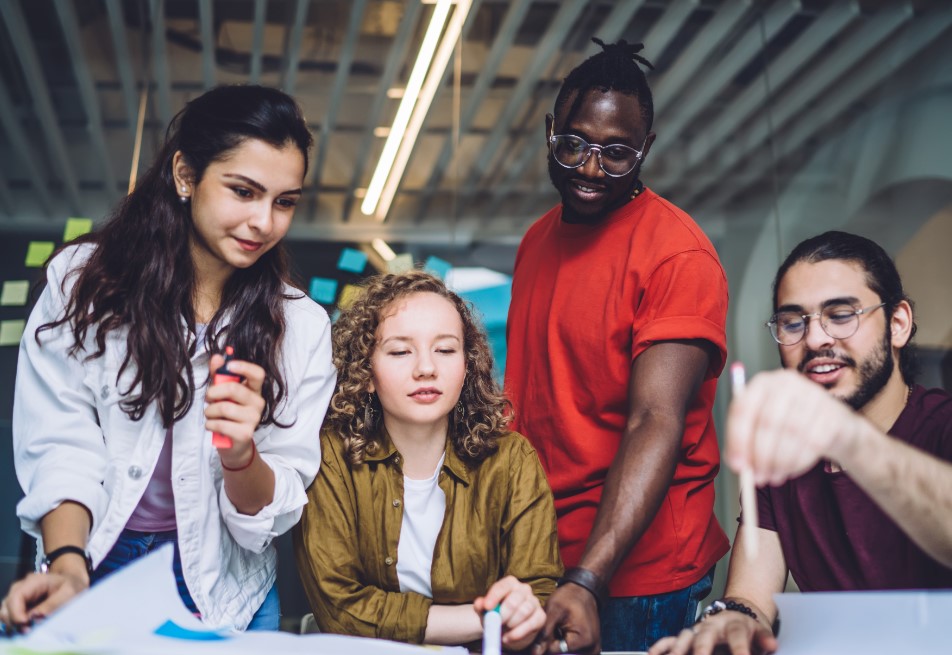Frantzeska Kolyda provides an overview of her article published in issue 27 of the Journal of Learning Development in Higher Education which aims to encourage educators and universities to explore interventions and practices that cultivate a growth mindset to reduce inequality in the academic success of students and the central role that learning development plays in achieving this.
‘I am not good at maths’, ‘I am not good at this’, ‘my classmates are smarter than me and get things quicker’, ‘I feel like an imposter’; educators may hear students saying.
Students’ beliefs about their competence, intelligence, and skills play an important role in their learning experiences, engagement, performance, and reactions to setbacks. Therefore, understanding how students develop their mindsets, particularly during university studies, is important. Additionally, students must be supported in realising the power in perceiving challenges as opportunities for future growth and that intelligence is malleable and skills can be developed.

Disadvantaged students, when they excel and manage to secure a place at university are often praised as ‘gifted’ by society or by their communities. However, ‘gifted’ implies effortless achievement, which is inextricably linked to the view that intelligence is not malleable and, hence, that people who make an extra effort are deficient. Such labels emphasise the importance of innate over cognitive ability in students and foster a fear of failure. Consequently, students often avoid challenges and cease making efforts to conceal a lack of understanding and retain their ‘gifted’ image, further creating significant learning barriers.
This article discusses ways to cultivate a growth mindset to reduce inequality in academic success among students from disadvantaged backgrounds and ethnic or other minorities in higher education, particularly in STEM subjects. It serves as a call for universities to invest in learning development and to support educators to work with learning developers to co-create and evaluate interventions and to self-reflect on their own practice and mindsets; to become aware of their own beliefs, assumptions, and/or biases. STEM classrooms are often perceived as difficult and competitive learning environments and, in these environments, students may be extra vigilant to the lecturer’s cues that may suggest that ‘students might not have what it takes’ to succeed.
Focusing on improving the current environment and considering factors that influence students’ mindsets, developing interventions and inclusive teaching practices, could build positive relationships, a learning culture and create effective learning environments where all students feel a sense of belonging.
I invite you to read this opinion piece and I welcome your thoughts and ideas.
Kolyda, F. (2023) “Fostering a growth mindset in higher education for inclusive learning for all”, Journal of Learning Development in Higher Education, (27). doi: 10.47408/jldhe.vi27.929.
